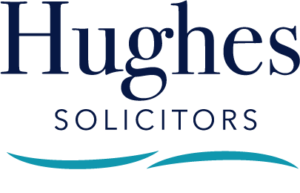When someone dies, all of their assets and investments need to be valued to work out the sum total of their estate to ensure the correct amount of inheritance tax is paid.
How stocks and shares are valued depends on whether they are listed or unlisted and there are a number of ways of working out their valuation, as Cerrig Parr in our Private Client team in Heathfield, East Sussex explains.
Listed stocks and shares are those quoted on the Stock Exchange Daily Official List and include:
- unit and investment trusts;
- open-ended investment companies;
- shares held in an Individual Savings Account; and
- foreign shares listed on the London Stock Exchange.
The relevant value is the market value of all the deceased’s shares on the day they passed away. These can be found in the financial sections of a newspaper or its website the day after their death.
Make a list of the name, type and face value of all the deceased’s shares, and add the price of each together to come to a total.
Share valuing services are available, and these provide an end of the day quotation for each of the shares. The price will appear as a range (for example, between 1200p and 1210p).
To calculate each share price, it is necessary to work out the ‘quarter-up’ price. So, if the difference between the lowest and highest range given is 10p, take the lower price (1200p), and add on one-quarter of the difference between the two prices (10p × 0.25 = 2.5p) to get the final value of each share (1202.5p).
If a dividend was due when the deceased passed, these too will need to be valued as it will be added to the deceased’s estate. The dividend should be indicated by one of a series of markings (e.g xd, xc) next to the quoted share price. To work out the value of the dividend, multiply the number of shares by the amount of dividend per share.
The Stock Exchange Daily Official List includes a number of markings that can modify the value of the stocks and shares. All of these modifications should be included in the final valuation; for example, the deceased may be entitled to new shares after death. The company’s registrar should be able to provide information on new shares.
The value of dividends due on unit trusts cannot be found in a newspaper, so the value will need to be obtained from the fund manager.
Similarly, if the deceased person had shares in an ISA, a valuation will be needed from the ISA fund manager for the market value on the date of death.
A total figure of any uninvested cash held in the ISA should be included in the valuation, as should shares listed on a foreign stock exchange, but not any other cash or insurance policies held in an ISA.
All UK government and municipal securities should be included in the valuation, using the closing price on the day the person died. These include: savings bonds, Treasury, Exchequer, Convertible and Consolidated and Funding stocks, Victory bonds, and War loans, plus government stock held on the British Government Stock Register.
All UK municipal securities, mortgages, debentures and stock in counties, cities or towns, dock, harbour and water boards, Port of London Authority, Agricultural Mortgage Corporation and Northern Ireland municipal stock, should also be included.
If the stock exchange was shut the day the person died, there is the option to use the closing price on either the last day the stock exchange was open before the person passed away or the first day the stock exchange was open after they died.
Unlisted stocks and shares
Unlisted shares are those not listed on the London Stock Exchange Main Market or a foreign equivalent, for example, shares in a private family company, those listed on the Alternative Investment Market or those traded on OFEX (Off Exchange).
To value private company shares, their open market value is required, not the face value. This figure can be obtained from the company’s secretary or accountant.
Shares on the Alternative Investment Market or OFEX can be valued in the same way as quoted stocks and shares.
How we can help
As can be seen, an extensive share portfolio may be complex to value and there are many potential pitfalls. Our wills and probate lawyers are experienced in dealing with complex estates, including the full range of investments and can help ensure your probate valuations are accurate and compliant for the inheritance tax calculation.
For further information on valuing assets for probate, please contact Cerrig Parr in our private client team in Heathfield, East Sussex on 01435 890 101 or email cerrigparr@hugheslaw.co.uk.
This article is for general information purposes only and does not constitute legal or professional advice. Please note that the law may have changed since the date this article was published.


